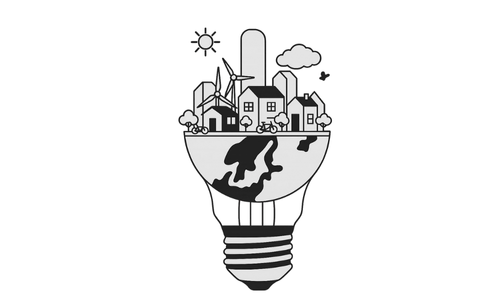What Does “Sustainability” Actually Mean?
We hear “sustainability” all the time, but it can feel like a vague buzzword. At its core, though, it is simple: sustainability is about balance - ensuring what we do today does not break tomorrow.
The Three E’s: Environment, Economy, Equity
These three pillars, often called the Three E’s, are the foundation of sustainability.
Environment: Protecting natural systems, biodiversity, and the climate, so future generations can thrive. This really means meeting today’s needs without compromising tomorrow’s - think of it as “living lightly on Earth.”
Economy: Building systems that are resilient and lasting, not just chasing short-term profit. Profitable, yes, but in a way that supports long-term success for communities and businesses.
Equity: Fairness in how benefits and burdens are shared. It is about social justice and ensuring everyone, including the vulnerable and marginalised, can thrive.
This framework is not new. It traces back to the Bruntland Commission, which in 1987 defined sustainable development and inspired global efforts like Agenda 21.
Why It Matters: It Is More Than Just Recycling
Here is what it means in real life: if something helps the planet but exploits communities, it is not sustainable. If it boosts the economy but wrecks First Nations land, it is not sustainable either.
Even small choices like where your salmon bagel comes from or how your superannuation is invested can connect to all three pillars of sustainability. If the café takes care to ensure that the fish is ethically sourced, it speaks to environmental responsibility by protecting ecosystems and supporting sustainable fisheries. At the same time, the way the café treats its staff reflects the social pillar, demonstrating fairness, dignity, and respect in the workplace. On the financial side, your super fund plays a role in shaping the future economy, whether it channels investments into clean energy projects that drive the transition to renewables, or into coal and gas industries that lock in environmental harm.
These everyday decisions, often taken for granted, actually ripple outward into environmental, social, and economic systems, showing how intertwined our values and consumption choices really are.
Your decisions, even the small ones, have ripple effects.
The Dirty Secret: Australian Banks and Fossil Fuel Financing
You might be doing everything right; cycling to work, cutting waste - but if your money is parked in a fossil-fuel-investing bank, it might be undoing your good intentions.
A report by Market Forces reveals Australia’s big four banks - ANZ, NAB, Commonwealth Bank, and Westpac have loaned over AU$61 billion to fossil fuel companies since the Paris Agreement in 2015. That includes $3.6 billion in 2023 alone.
2023 marked the first year these banks did not directly fund new or expanded projects, but they still supported companies via bonds and general finance.
ANZ is the biggest contributor, lending over AU$20 billion to fossil fuel activities during this period.
NAB was the largest lender in 2023, extending AU$1.4 billion
Commonwealth Bank lent the least in 2023 - around AU$271 million - yet still supported projects like the Beetaloo Basin pipeline.
Westpac lent about AU$784 million, including AU$533 million directed toward companies expanding fossil fuels
These loans are estimated to have enabled the release of an additional 9 billion tonnes of CO₂. That is like wiping out Australia’s emissions cuts for 2021 to 2030 21 times over.
What Should You Do? Divest, Switch, and Make Your Money Work for Good
Here is how to make your financial choices support sustainability:
Check your super fund
Super is often your largest investment pool. Market Forces estimates around AU$150 billion of Australians’ retirement savings could be tied to climate-damaging companies. Use tools like this comparison tool to find funds that exclude fossil fuels.Switch to greener banking
Many Aussies stick with the big four without realising they are funding pollution. You can switch to banks or credit unions that do not invest in fossil fuels - or at least write to your current provider to demand better.Invest with transparency and purpose
If you are into shares, ETFs, or managed funds, watch out for greenwashing. Check for certification from the Responsible Investment Association Australasia or the Ethical Advisers’ Co‑op Leaf rating.Use your power as a shareholder
You can buy into companies causing harm and push for change from the inside via platforms like the Sustainable Investment Exchange.
The good news? Ethical funds often perform well. The RIAA’s 2024 report shows responsible investment funds outperformed mainstream ones by 3 percent over 10 years, 1.5 percent over five.
How inaam Can Help
Sustainability is all about making choices today that protect the planet, support people, and build a fair economy for tomorrow. inaam was built to help you invest in ethical companies that prioritise people and the planet. Even better, it tracks the impact of your investments so you can actually see how your choices are contributing to clean energy, fair wages, and a more sustainable future. With inaam, your money doesn’t just grow, it creates change.
Final Word: Let Your Money Speak for the Future
Sustainability is not just about what is in your bin. It is ethics, it is economics, it is equity and it applies to your money too.
If you align your cash with clean energy, fair wages, and ethical investing, your dollars do not just sit. They speak.
This is not personal financial advice, it’s just a nudge: when you look at money through the lens of the three E’s, even a small switch can start making a big difference.
Note: This is general information, not financial advice. Always do your own research or speak to a licensed advisor before investing.




